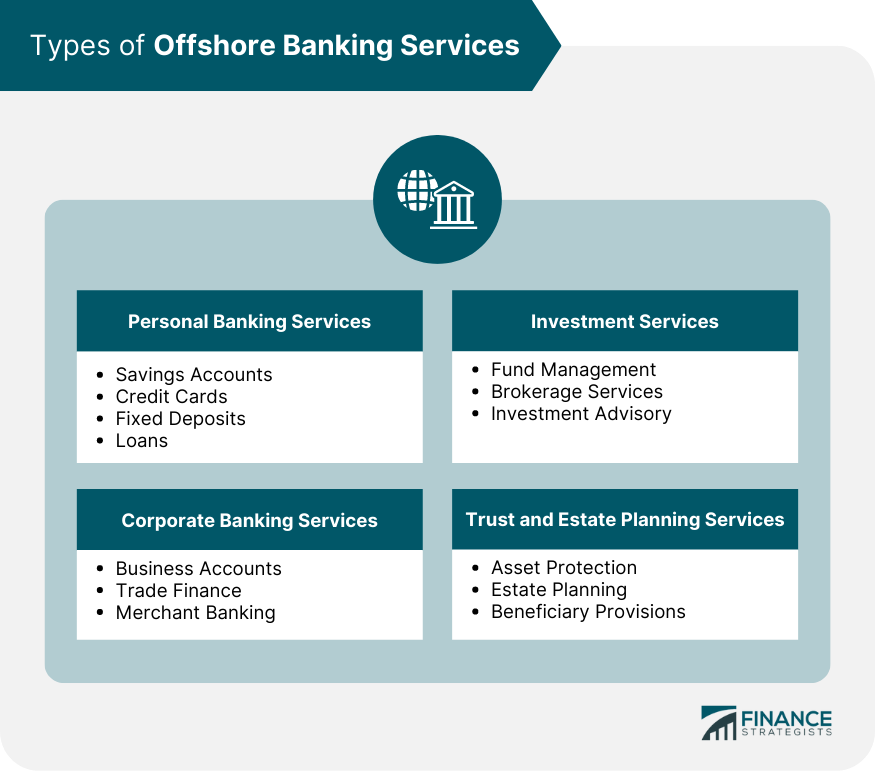Offshore Company Formations Fee Guide: What to Budget
Demystifying Offshore Business Formations: Exactly How They Run and What to Expect
Offshore business formations can appear complicated and enigmatic. Offshore Company Formations. These entities, often developed for tax advantages and personal privacy, run under distinct legal frameworks. Entrepreneurs may find themselves maneuvering through a maze of laws and compliance needs. Understanding the ins and outs is important for success. What are the actual advantages? What are the possible mistakes? A closer examination discloses the subtleties that might influence decision-making substantially
Comprehending Offshore Companies: Definitions and Kinds
Offshore firms are entities established in a jurisdiction beyond an individual's or business's main country of home, usually for functions related to tax optimization, possession protection, or governing benefits. These business can take numerous types, consisting of restricted responsibility companies (LLCs), global organization firms (IBCs), and offshore depends on. Each type offers particular features and interest different requirements.
Minimal obligation companies give owners with security from personal responsibility, while international organization firms are prominent for their adaptability and marginal coverage needs. Offshore trust funds, on the various other hand, are made use of mostly for estate preparation and asset defense.
The selection of territory greatly influences the firm's procedures, as some areas use a lot more positive lawful frameworks and privacy defenses. Offshore Company Formations. Recognizing the differences between these types is vital for organizations and people taking into consideration offshore frameworks, as each alternative carries different ramifications for governance and conformity
The Advantages of Establishing an Offshore Business
Establishing an overseas firm can offer various advantages, particularly for those seeking to improve their economic techniques and secure their properties. One significant advantage is tax optimization; many territories supply beneficial tax obligation rates or exceptions, allowing companies to preserve more earnings. In addition, overseas companies can provide a layer of privacy, shielding the identifications of owners and shareholders from public scrutiny.
An additional benefit is property security. By positioning properties in an offshore entity, individuals can secure their wide range from possible legal insurance claims or political instability in their home countries. This structure additionally facilitates global business procedures, enabling much easier accessibility to varied clients and worldwide markets.
The establishment of an offshore business can boost trustworthiness and stature, appealing to clients who value international company practices. On the whole, these benefits make overseas business formations an attractive choice for businesses and people aiming for economic development and protection.
Secret Factors To Consider Before Creating an Offshore Entity
Prior to creating an offshore entity, a number of essential elements should be analyzed. Legal conformity needs, tax effects and benefits, along with jurisdiction choice, play a considerable role in the decision-making procedure. Understanding these considerations can aid individuals and services navigate the complexities of overseas business formations effectively.

Lawful Compliance Demands
When considering the formation of an overseas entity, understanding lawful conformity requirements is necessary to guarantee adherence to both worldwide and local regulations. Potential entrepreneur must acquaint themselves with policies controling business registration, reporting obligations, and functional standards in the chosen jurisdiction. This includes verifying the legal demands for shareholders and directors, in addition to making sure conformity with anti-money laundering (AML) and know-your-customer (KYC) policies. Furthermore, services should stay familiar with any kind of licensing demands details to their sector. Engaging regional lawful and financial specialists can supply beneficial insights, making certain that all needed documents is prepared and sent properly. Ultimately, complete expertise of lawful compliance helps reduce risks and fosters a sustainable overseas operation.
Tax Effects and Advantages
Many company owner think about the tax obligation ramifications and benefits of creating an offshore entity as a vital consider their decision-making process. Offshore firms can use significant tax obligation benefits, such as reduced corporate tax rates, exemption from particular regional tax obligations, and the capability to postpone tax obligations on international income. These advantages can cause enhanced profitability and capital, making offshore frameworks appealing for global organization procedures. In addition, the possibility for tax obligation treaties might better lessen tax obligation obligations. Nevertheless, it is essential for local business owner to comprehend the complexities involved, including conformity with both worldwide and regional tax obligation policies. Engaging with tax obligation professionals is recommended to browse these details properly and ensure excellent tax preparation strategies.
Territory Choice Aspects
What variables should one think about when choosing a territory for overseas company formation? Secret considerations include tax obligation efficiency, regulatory environment, and political stability. Territories with beneficial tax regimes can greatly impact success. The governing landscape must provide versatility and ease of compliance, permitting reliable organization procedures. Political security is important, as it assures the security of possessions and connection of operations. Furthermore, the online reputation of the jurisdiction can impact customer count on and service connections. Accessibility to banking solutions and the availability of specialist assistance solutions are additionally essential. Lastly, recognizing local regulations concerning privacy, coverage, and possession needs is vital to determine that the overseas entity lines up with the service owner's objectives and legal responsibilities.
The Process of Establishing an Offshore Company
Establishing an offshore company includes a collection of strategic actions that require mindful preparation and compliance with global guidelines. At first, a private must choose an ideal territory that lines up with their service goals and uses beneficial tax obligation benefits. Following jurisdiction choice, the next action is to select a distinct business name and prepare the necessary paperwork, consisting of articles of unification and investor agreements.
As soon as find out this here the paperwork is all set, it needs to be submitted to the appropriate authorities together with the needed costs. After approval, the business will obtain a certification of unification, formally developing its lawful existence. The private have to after that open up a business checking account to assist in financial purchases.
Preserving an offshore business entails adhering to continuous conformity requirements, such as yearly coverage and tax obligation responsibilities, which differ by jurisdiction. As a result, recognizing each step is vital for a successful offshore company development.
Governing and lawful Framework for Offshore Firms
While establishing an overseas business can supply substantial benefits, it is important to navigate with the complex lawful and regulatory structure that governs such entities. Each jurisdiction has its own collection of laws that determine whatever from firm formation to taxation and compliance requirements. These laws are made to prevent illegal activities, such as money laundering and tax evasion, and usually require thorough documents and transparency.
Crucial element of this framework consist of the necessity of selecting neighborhood supervisors, keeping an authorized workplace, and sticking to yearly coverage responsibilities. In addition, several jurisdictions enforce specific licensing needs for particular business tasks. Understanding these legal stipulations is crucial for making certain compliance and mitigating dangers linked with charges or legal disagreements. Engaging with legal professionals who specialize in overseas firms can aid in navigating with this complex landscape, eventually helping with a certified and successful overseas service operation.
Common Misunderstandings Regarding Offshore Business
Lots of people hold misunderstandings concerning overseas companies, often relating them with tax evasion and prohibited activities. It check it out is essential to recognize that these entities can operate legitimately within a framework made for genuine company practices. Clearing up the lawful condition of offshore business can assist dispel these myths and advertise a much more precise understanding of their function.
Tax Obligation Evasion Myths
Despite the growing popularity of overseas firms, misunderstandings about their use for tax evasion continue. Many people mistakenly think that developing an offshore entity is solely a method to prevent tax obligations. Nonetheless, offshore companies are typically made use of for reputable objectives, such as asset security, worldwide company development, and investment diversity. The assumption that all overseas tasks equate to immoral tax evasion neglects the intricacies of global tax policies and conformity demands. Furthermore, the substantial bulk of overseas territories have actually implemented actions to fight tax evasion, advertising transparency and details exchange. This mischaracterization can hinder legit businesses and financiers from discovering the possible benefits of overseas business formations while bolstering an unfavorable stigma bordering these entities.
Lawful Standing Clarified
The lawful condition of offshore business is often misconstrued, resulting in a range of misconceptions. Several think these entities run in a legal gray location, assuming they are underhanded or inherently unlawful. In fact, overseas business are genuine businesses formed under the laws of details territories, developed for numerous factors, including asset protection and market growth. Another typical misunderstanding is that offshore business avert tax obligations totally; nonetheless, they are subject to the regulations and tax responsibilities of their home countries. Additionally, some people assume that overseas firms can be easily manipulated for cash laundering or illegal activities. While abuse can take place, many jurisdictions enforce strict compliance and transparency regulations to reduce such risks, making certain that overseas firms operate within lawful frameworks.

Taking care of and Operating Your Offshore Business Properly
Successfully managing and operating an offshore company requires a calculated approach that stabilizes conformity with regional laws and the search of business objectives. Effective offshore administration involves comprehending the territory's tax obligation regulations, reporting needs, and operational guidelines. Using regional professionals, such as accountants and legal advisors, can offer invaluable insights right into traversing these complexities.
Additionally, establishing clear interaction networks and operational procedures is important for maintaining effectiveness. Utilizing innovation for task monitoring and cooperation can enhance productivity, while regular performance evaluates warranty alignment with calculated objectives.
Keeping robust financial records is crucial, as transparency cultivates depend on with stakeholders and complies with international requirements. Ultimately, being adaptable to modifications in regulations or market conditions enables overseas business to pivot effectively, guaranteeing long-term sustainability and growth. By adhering to these principles, company owner can maximize the advantages of their offshore endeavors while mitigating risks.
Regularly Asked Inquiries
Just how Much Does It Expense to Maintain an Offshore Company Each Year?
The price to preserve an offshore firm annually varies considerably, normally ranging from $1,000 to $5,000, depending upon territory, solutions required, and conformity obligations. It is crucial to consider added charges for certain demands.
Can I Open a Checking Account for My Offshore Firm From Another Location?
Opening up a checking account for an offshore company from another location is normally possible. Nevertheless, needs might vary by territory, often requiring documentation and confirmation procedures, which can complicate the remote application experience for people.
Are There Specific Nations Understood for Easier Offshore Company Formations?
Specific countries, such as Belize, Seychelles, and the British Virgin Islands, are renowned for their structured procedures and positive guidelines relating to offshore business developments, drawing in business owners looking for performance and discretion in organization operations.
What Kinds of Organizations Are Ideal Matched for Offshore Companies?
Certain services, such as investment, ecommerce, and working as a consultant firms, commonly take advantage of offshore companies as a result of tax advantages, privacy, and regulatory flexibility - Offshore Company Formations. These entities normally thrive in jurisdictions that promote desirable business environments
How Can I Make Sure Conformity With Neighborhood Laws When Operating Offshore?
To guarantee conformity with regional regulations when running offshore, it is necessary to engage lawful professionals, conduct thorough research study on jurisdiction laws, and keep clear monetary records, thereby reducing risks connected with non-compliance.
